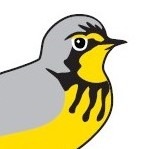
Downy Woodpecker Photo: Barbara Morse
18 October 2016 – Participants in Project FeederWatch make a difference by collecting simple information about birds visiting feeders in winter. FeederWatchers help researchers at Birds Canada and the Cornell Lab of Ornithology monitor changes in the fortunes of feeder birds. The program is now in its 30th season, and this long-term dataset is more valuable than ever. All are welcome to join – from dedicated birdwatchers to those who would like to give it a try! FeederWatchers’ observations support bird research and conservation.
The program has yielded many discoveries since it began in 1987. The Evening Grosbeak, once a common feeder bird in winter, has disappeared from much of its former range. The Eurasian Collared-Dove (a non-native species) has spread from Florida to Alaska in less than a decade, and is quickly becoming familiar in British Columbia. “Project FeederWatch participants are reporting more American Robins than ever before,” says Canadian Coordinator Kerrie Wilcox. “More robins are staying farther north than a few decades ago.” Northern Cardinals, Red-bellied Woodpeckers, and Carolina Wrens are expanding their ranges in eastern North America, as are Anna’s Hummingbirds in the west. Although scientists are still investigating the causes, climate change may be a factor. Project FeederWatch supporters help scientists detect these kinds of large-scale bird population trends.
More than 20,000 FeederWatchers contribute data by reporting the highest number of each species they see at their feeders during periodic two-day counts from November through early April. It’s simple to do, and is a great activity for families and school groups. Participants choose how much time they devote to the project.
Online tools enable users to explore FeederWatch trends – locally, in a specific region, or across the continent.
Through an annual registration of $35, participants fund Project FeederWatch – it’s free for Birds Canada members. Canadian participants receive a subscription to BSC’s magazine BirdWatch Canada, a poster of common feeder birds, a calendar, last season’s results, and access to online data tools. Birds Canada and Cornell Lab of Ornithology also share expert advice to help participants identify, understand, and look after feeder birds.
To join, visit www.feederwatch.org or contact the Canadian coordinator at 1-888-448-2473 or pfw@birdscanada.org. In the United States, call 1-866-989-2473.
Armstrong Bird Food is a national sponsor of Project FeederWatch in Canada. The partnership aims to inspire more Canadians to discover the fun of FeederWatch and the importance of Citizen Science.
Project FeederWatch is a joint research and education project of Birds Canada and the Cornell Lab of Ornithology.
Media Contact
Kerrie Wilcox, Canadian Coordinator
Project FeederWatch
Birds Canada
Tel. 519-586-3531 ext. 134 or 1-888-448-2473 (Toll-free)
kwilcox@birdscanada.org
In the U.S., contact Emma Greig, 607-254-2148, eig9@cornell.edu.

